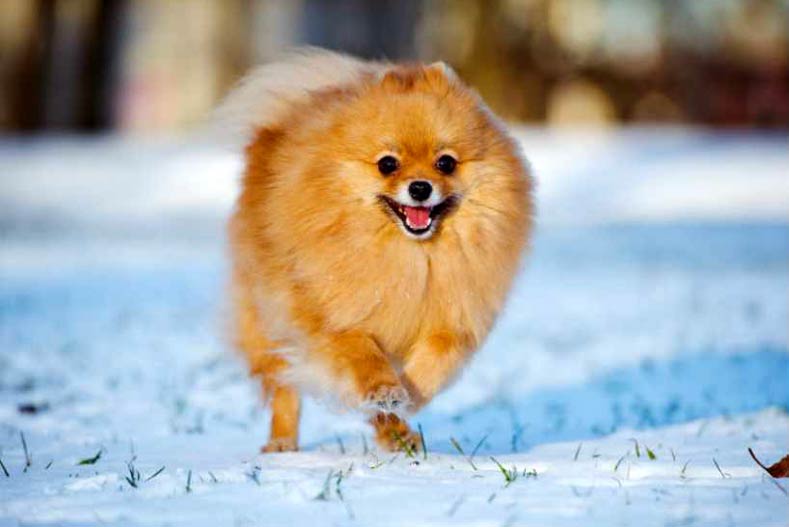Winter Tips for your Furry Friend
As the winter season is soon approaching it is important to consider man's best friend as you prepare yourself and your home for the coming cold. When most people consider winter weather and their dogs, they generally are concerned with making sure their dogs have a coat if they have short fur and booties to protect their paws. Those items are great to consider, especially if you have a short haired dog (French or English bulldogs), but there are many other factors to consider in order to maintain your fluffy friends’ comfort. While some dogs may be well accustomed to cold weather (Huskies and Shepherds), they may still need special attention to deal with man's attempts at making the weather season more comfortable for ourselves. Salt and chemical can cause several problems for our furry friends.
Paw Care
Your pet’s paws are undoubtedly the most affected by winter weather for various reasons. The most obvious is that if unprotected they are having direct contact with snow and ice. This can cause buildup of snow in between your dog’s toes and lead to cracked or bleeding paw pads. Combine this with chemicals and salt strewn about to melt ice and your routine walk becomes an excruciating nightmare for our fuzzy friends. The best thing you can do to protect your dog is to put booties on their feet but that is not always an option. For all dogs strapping things to their paws makes them feel weird and it takes them time to get used to wearing booties. However, your pooch may be a dog that absolutely refuses to walk with them and will chew them off before you can get out the door. For these dogs the best thing you can do is to wipe down their paws after walks to remove any salt or chemical they might have picked up. Check your dog’s paws daily for cracked or bleeding paw pads. If your dog has long hair you should trim the fur to minimize the buildup of snow, especially in between their toes. Petroleum jelly and similar products are also a great extra step to ensure comfort.
Car Safety
Everyone is well aware of the dangers of leaving your dog in the car during a warm day, but many people seldom think about the consequences of a cold car, especially for young, old, or thin dogs. Do your best to limit car travel to only what is necessary with your pet and if possible, just leave them home. This is a pretty commonly known fact, but you should always make lots of noise before starting your car as animals (mainly cats) will use wheel wells and engines as shelter and providers of heat. Honking the horn or popping the hood are great ways to get rid of or find stowaways.
Outdoor Dogs
The best thing you can do for your dog is bringing them inside for the winter. In some cases that is just not possible. In the event you must keep your dog outside you should take several steps to ensure they are safe and comfortable. The first and foremost is that your dog will need shelter from the wind and snow. While the shelter should obviously protect your dog from wind you also need to take into account the placement. Never place a doghouse in low elevated areas or places where water is known to collect. Just because the shelter keeps snow out does not mean is will keep the cold water out when the snow melts. It is not recommended to use a space heater to keep your dog warm as they can be knocked over causing fires or burns. You can use a heated mat although do so with caution as they can still burn your dog. Make sure you give your dog options as well, as they will be in varying degrees of weather, especially for those of you living in the Midwest. As for feeding your dog during winter, make sure to use plastic bowls instead of metal so their tongues don't get stuck. Also be sure to bring fresh water regularly to keep their water source from being frozen. If you notice your dog has become sluggish, is whimpering, or is moving less or not at all, bring them inside immediately as those are signs your dog is getting hypothermia. Frostbite can also be a big issue for dogs, but it can be very difficult to spot especially with dogs with long fur. If you suspect your dog has either of these see a vet immediately.
More Chemicals!
Always check your parking spot for leaks or spills of anti-freeze, as even small amounts of the stuff can cause harm to your dog or even death. When deicing your driveways and sidewalks try to use pet friendly salts.
Nighttime Walks
Now that it is winter the sun is setting sooner so we may find ourselves walking our dogs in the night. To keep you and your pet safe make sure both of you are wearing reflective clothing or items and keep your dog on a shorter leash. If you haven't already it may be a good time to consider micro chipping your dog in the event you are separated.
Beware of Blizzards
For those of you who live in areas where snow is common or may face a blizzard you should always have a plan for being trapped inside for several days. These plans should also include your pets. Make sure you have enough food for your dogs for at least five days.

